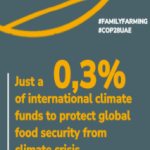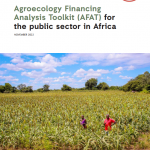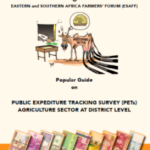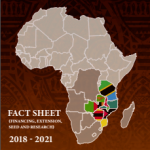EU supports 1.4 million EURO to small scale farmer in East Africa
5/2/2013
The European Commission has granted 1.4 million Euro to support small scale farmers in East Africa. The funds will help involvement in policy dialogue and monitoring for improved food security in the region.
The support that runs for 3 and half years is expected to be officially launched in Dar es salaam, Tanzania on 12thMarch 2013. The project will be jointly managed by the Eastern and Southern Africa Small Scale Farmers Forum (ESAFF); A network of small scale farmer Groups in Tanzania (MVIWATA) and GRET Professional Association of France.
The implementation will involve the participation of the other ESAFF members, in Kenya, Uganda, Rwanda and Burundi. It aims at strengthen the capacities of ESAFF and its members in the five countries of the East African Community (EAC):
- To contribute to the formulation and monitoring of the policies with impact on food security at local, national and regional levels.
- To foster agricultural commodities’ trade within the region, building on MVIWATA-managed district-based bulk markets as pilot experience.
The Executive Director of MVIWATA, Mr. Stephen Ruvuga says that his organisation had managed a multimillion EU funded project on markets that have stimulated local economies and improved lives of small scale farmers through improved prices and quality of produces sold to those markets. “Through this project we would like to share our experience to the other four East African countries.
On his side the chairman of ESAFF Mr. Moses Shaha said the project will help smallholder farmers enhance their organizational technical and managerial capacity. He said that small scale farmers suffer marginalization because of poor organisational and managerial capacity to manage their organizations. Effectively advocacy needs people and strong institutions to sustain the movement. “We will recruit more members and build their capacity to be able to influence national and regional policies in Agriculture” said Shaha.






















